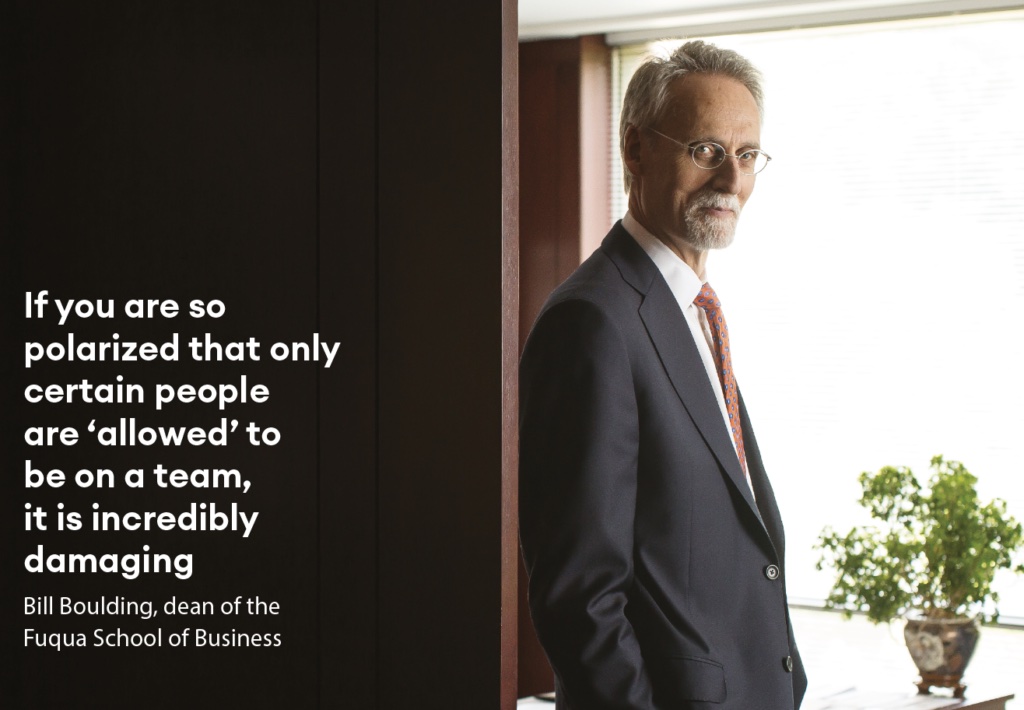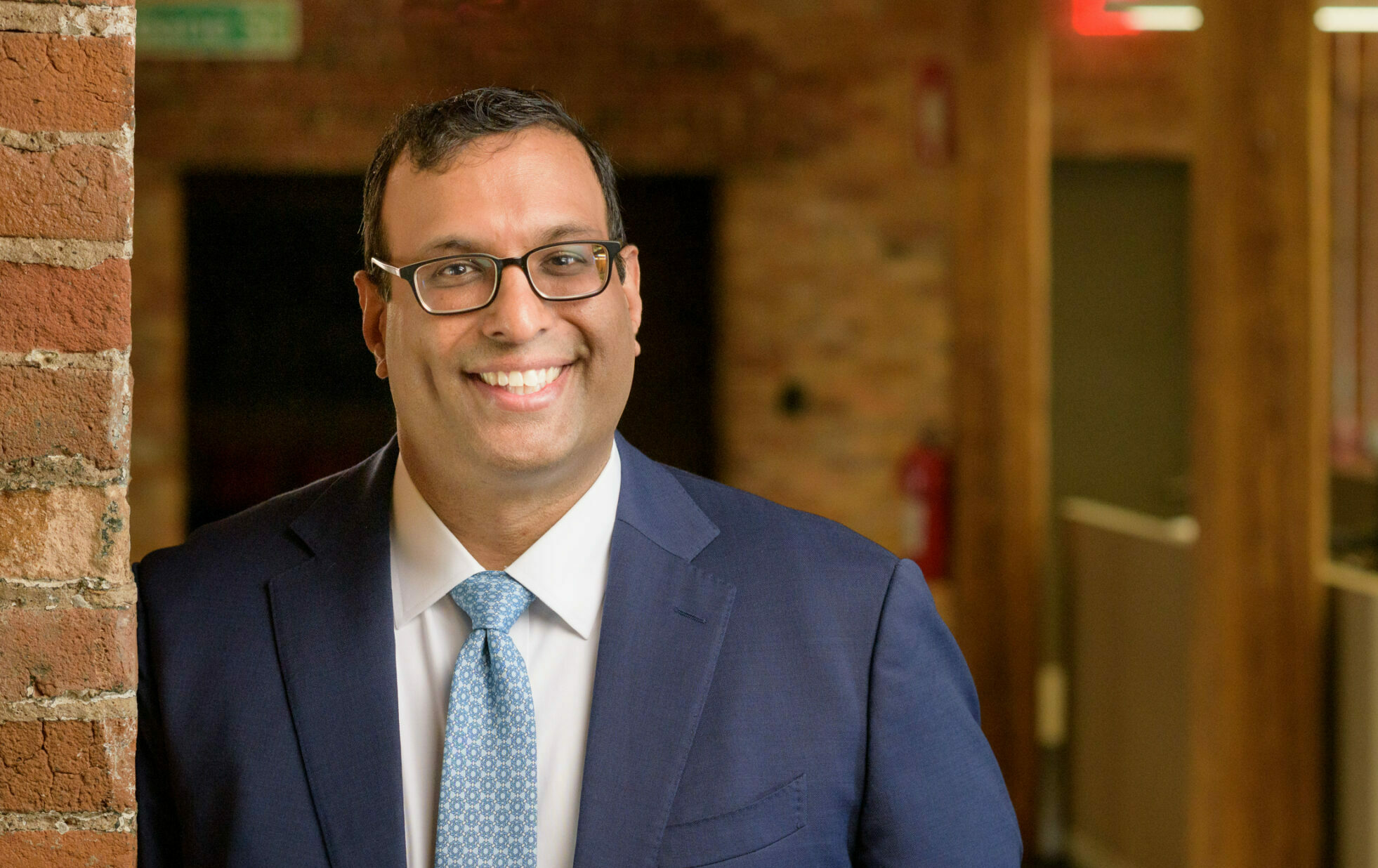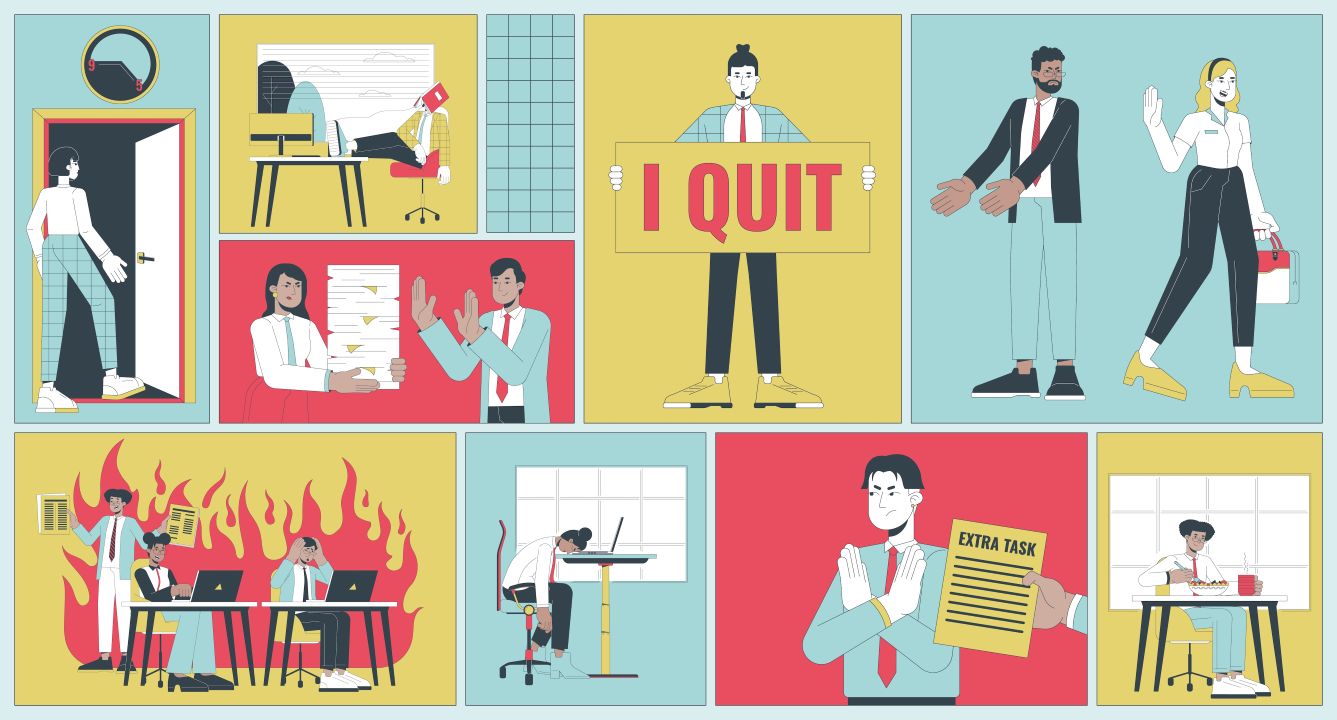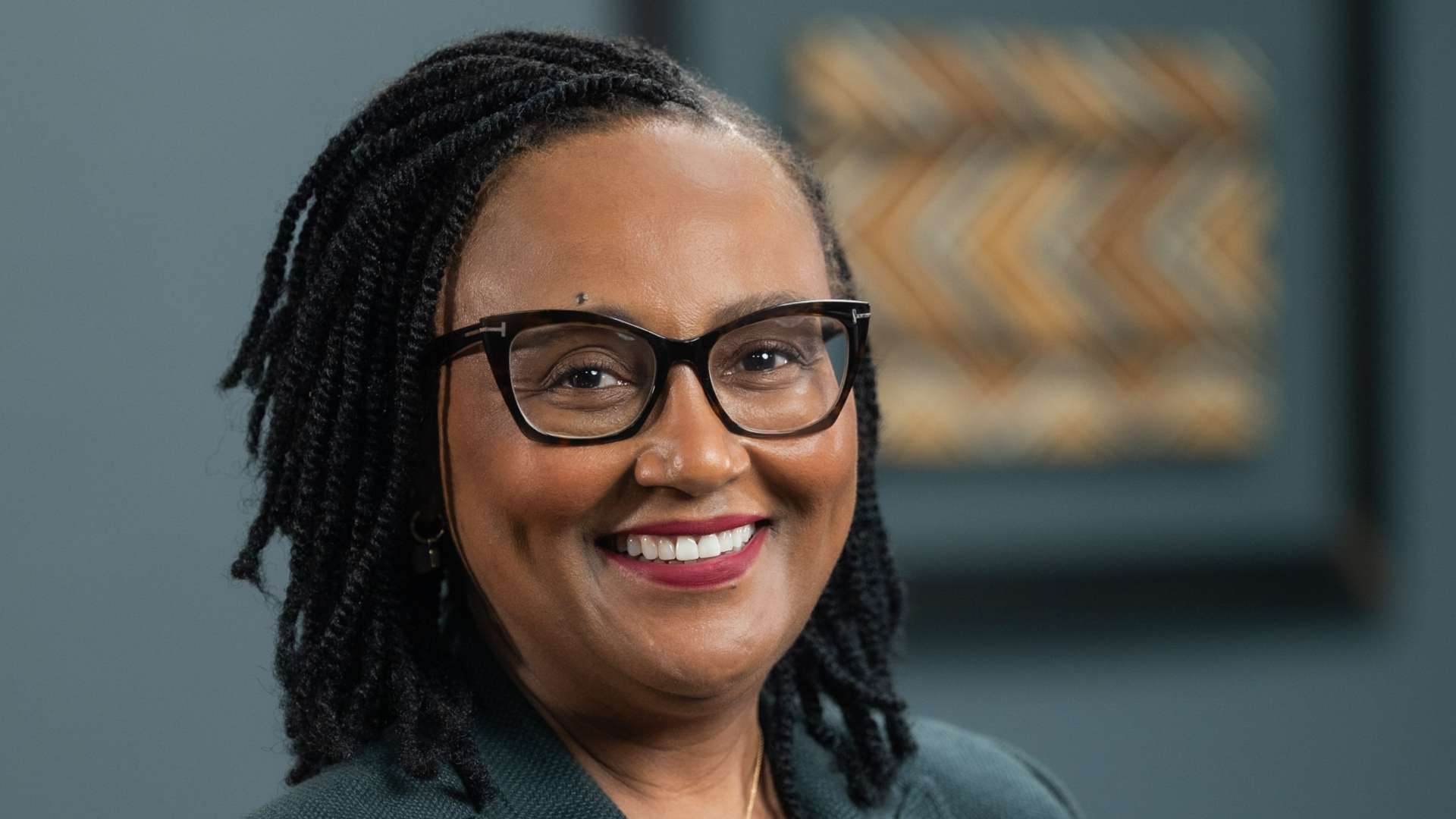Our communities seem more deeply divided than ever. Dialogue speaks to Bill Boulding, dean of the Fuqua School of Business, and asks – as the public turns to business to solve complex social challenges, can leaders bring people together?
How do you perceive the forms of division that characterize the world today?
Without a doubt, we are operating in a divided world. The divisions we face were happening before Covid-19, but they have been intensified by the pandemic – and new ones have emerged. The health threat has faded but discord and disagreement are still with us. Our fractured societies will take years to heal. The question of how quickly the damage is repaired, and how fully we recover, will be significantly influenced by the role played by business.
We face three major divisions that reach right across society. The first is a division of polarization. This was very evident before Covid-19, but it intensified still further during the pandemic years as we collectively encountered these questions of life and death. In a moment of extreme threat, we might expect people to pull together – but some people sought to politicize key public health policy decisions, from vaccines to masking to re-opening. Complex policy decisions that were intended to protect people were reframed in simplistic binary terms: ‘Whose team are you on?’ We see the same thing happening with any number of other issues – including climate change, another existential threat that has become a source of division rather than something we pull together to tackle.
The second dimension of division, which again existed well before Covid, is marginalization. Historically, we have seen populations marginalized because of many different factors: gender, skin color, religion, country of origin, sexual identity, and so on. During Covid, people who didn’t have access to the same kind of healthcare options – sometimes because of those characteristics – were further marginalized. They were threatened by Covid in ways that others were not, deepening the sense of marginalization.
The third division is squarely Covid-related. It relates to a sense of belonging, and its absence. Much of what people seek in life is about finding belonging, by connecting and identifying with others. The people we value in our lives are a source of comfort during difficult times, and of joy and celebration in the good times. Belonging is fundamental to human nature, but the pandemic took that away. It created a literal isolation, disconnecting us from our support networks. Alone and fearful of a terrible disease and its economic impacts, people began to think: “I’ve been threatened, I’ve been damaged, I’ve been disconnected” – the emphasis on I, rather than we. The longer the isolation continued, the worse this feeling became.
This is highly problematic, because research shows that when we are disconnected from other people, we trust them, value them and respect them less. The direct consequence of pandemic isolation was that divisions which we could have started to heal through simple human connection instead worsened and deepened.
What are the implications of those divisions for how we all work together and for what leaders are trying to achieve in their organizations?
This is a hugely challenging moment for business leadership, because today’s divisions strike at the very heart of the ability to build great teams. If you are so polarized that only certain people are ‘allowed’ to be on a team, it is incredibly damaging. Great teams need great talent. Leaders cannot create artificial barriers, saying “I only want people who look like me, act like me, think like me.” Polarization is the enemy of great teams.
So is marginalization. Saying, “You can be on my team, but I’m not going to give you full membership – I’m not going to let you off the bench to get into the game,” undermines the inclination of any individual to give their best efforts. Isolation also weakens the sense of team: working at home, week after week, it is easy for people to feel that their leaders and colleagues don’t care about them. Again, it leads to people going through the motions in their work, checking the boxes rather than giving their best.
Today’s divisions weaken organizations’ ability to achieve greatness. Leaders need to counteract those effects, showing care and consideration for their people, ensuring they feel respected, valued, and committed to team goals. A sense of purpose, meaning and belonging is essential – because purpose is how organizations do great things. It is the essential basis for bringing people together and getting them working toward common goals.
And what are the consequences of these divisions for how businesses operate – for the role that they are expected to play in today’s world?
I think we have seen people’s views on the role of business in society evolving very significantly in recent years. As social divisions have deepened, trust in institutions has been eroded – right across governmental and non-governmental institutions, the media and society groups. The corollary has been that trust in business has increased. In the pandemic, many people felt that their organization was the one place they were getting advice they could trust. Employees believed that their company and their CEO had their best interests at heart.
That increased level of trust has come with a sharp rise in the number of people who think businesses should play a direct role in tackling society’s problems. The 2023 Edelman Trust Barometer Global Report shows that people expect CEOs to take a public stand on key issues, starting with the treatment of employees (89%), climate change (82%) and discrimination (80%). With 63% saying they also buy or advocate for brands based on their beliefs and values, leaders need to be proactive in thinking about societal challenges.
Now, this is a task that is both complicated and difficult. The complicated part is that rising expectations of business come with a caveat: people don’t want business to be political. Business’s very appeal is its non-political standing: people’s trust stems from the belief that business is trying to do things that advance the common good, for all of society, rather than serving the interests of narrow groups. And this is the difficult part. When complex issues are reduced to a question of ‘whose side are you on?’, it becomes harder to make the case that a course of action benefits everyone. This effect has become evident in efforts to advance racial equality in the US. Now we see the same dynamic playing out around climate change and the attacks on ‘woke’ ESG ideas in business investment decisions.
Like it or not, the politicization of these issues is having an effect. Recent years saw increasing clarity emerge among chief executives about the need to accelerate climate-related work, simultaneously benefiting their company and society as a whole. Some now quietly ask if they should back off from that work, fearing political attacks. If leaders feel that their options are constrained, the risk is that they fail to do things that are both good for their company and good for society.
So we have a situation where many people expect business to do more to bring practical solutions to social problems – yet at the same time, there’s an intense level of scrutiny and pressure that risks closing down the options for how businesses act. What can leaders do?
I point to three things. They are not entirely satisfying – they are only partial solutions, and they are heavily context-dependent. But then today’s challenges are not susceptible to simplistic solutions: leaders will find their options vary substantially according to their business context.
The first step is to review your values and ask whether you are consistent and clear about what they mean to your business. Values are the essential starting point for leading through division. What are your business’s values? Have you been clear about them? The answer to that can lead to either a more open or a more challenging path through contested issues.
Think about the recent controversies around LGBTQ+ matters, for example.
On one hand, Disney has found itself in conflict with the state of Florida over the so-called Don’t Say Gay education bill, after initially being criticized by employees and LGBTQ+ advocates for failing to oppose the proposals. And we’ve seen Bud Light facing a conservative boycott over a promotion involving a transgender influencer. On the other hand, Apple recently released a rainbow-colored Pride Edition of the Apple Watch, without much apparent pushback. Why is there such a difference? Part of the reason is that Apple has been clearer about its values for longer. That has prepared the ground and smoothed its path forward. Its position looks less overtly political so when it now launches a Pride-themed product, it’s not news.
So being clear over time is essential. For companies that have not been crystal clear about their values, therefore, the first priority is to establish those values and clarify what the organization stands for. It means assessing how those values align with your purpose and the way that leaders run the company. It also means recognizing the importance of leaders’ ‘decency quotient’, or DQ, alongside intelligence and emotional quotient. (See ‘Decency: the missing factor’ by Bill Boulding, Dialogue, Q3 2019.)
The second recommendation is simply to keep doing the work that delivers both business value and social impact. Should leaders welcome all people who deserve to be in their organization and make them feel part of the team? Absolutely. That isn’t political, it’s good business. The difference going forward may be that some businesses opt to make less public noise about their activities, for instance those that relate to diversity, equity and inclusion, or climate change. Some CEOs are already using ESG less often – but that doesn’t mean the work has stopped. They will continue to do what is right for their business and for society.
Such an approach will be frustrating for those who look to business for leadership when they fail to find it in government and other institutions. It also risks losing the potential multiplier effect that follows when major organizations stand up for points of principle. But business can still lead by example and show that debated issues need not be polarizing.
Finally, the third factor is that businesses need to take a long-term view of the drivers of sustainable value, in the broadest sense. How will your company attract and retain talent? What will drive profitability in the long term? Prioritizing the long-term requires discipline and nerve, but holding on to long-term goals can help leaders resist short-term pressures.
When you reflect on the divisions we face, how do you assess the outlook for business and for society over the years ahead?

When I think about how today’s divisions might play out, I see two possibilities.
There’s a positive scenario, where business shows how people can come together to advance the common good. We celebrate the upside of difference, bring together people who are different from one another to accomplish great things. Our organizations are reinforced as spaces where we can make that happen. We show others how to engage in civil discourse and reverse the pernicious trend toward polarization that is so damaging to society.
The alternative is that we could allow the divisions seen across society to be replicated within our companies. We could yield to attempts to homogenize our teams and reduce our exposure to people who think differently, act differently and believe different things – much as many people already do in their online networks. It would, in my opinion, be absolutely crushing to society.
It is every leader’s responsibility to avoid that gloomy scenario. By creating clarity about values, continuing to do the work, and staying true to what will drive success over the long term, businesses can bring people together and deliver benefit for everyone in society.
William “Bill” Boulding is dean of Duke University’s Fuqua School of Business. He was speaking to Patrick Woodman, editor of Dialogue.




